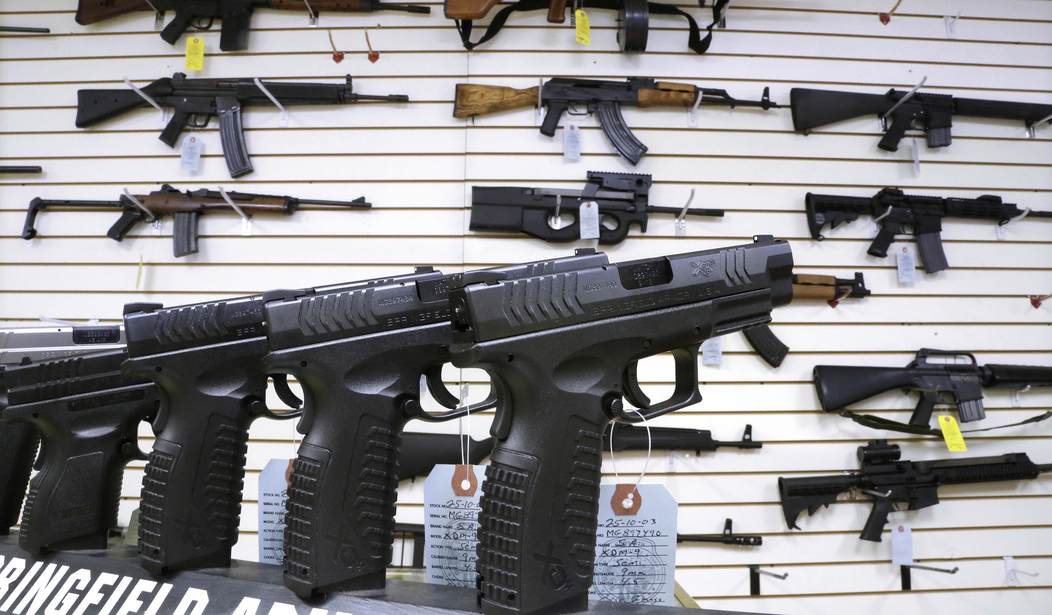Imagine that you owed a company that, say, made pillows. You'd expect to be liable for anything you did wrong that caused injury. For example, you'd understand if it turned out that the materials you used weren't what you said they were and someone had an allergic reaction. You wouldn't understand, though, if you got sued because someone's spouse smothered them with the pillow you made.
It would be insane to sue you because of what someone else did, yet a lawsuit just like that got the go-ahead from an Illinois court.
The lawsuit in this case, though, involves Smith & Wesson, which is being held at least partially responsible for the Highland Park shooting.
An Illinois court ruled on Tuesday that a wrongful death lawsuit filed against the maker of the gun used at the 2022 Highland Park mass shooting can go to trial.
What we know:
The families of the victims filed the lawsuit against Smith & Wesson, the maker of the M&P 15, an AR-15-style weapon, used by the shooter, and two gun dealers who ultimately sold the weapon to Robert Crimo III, who pleaded guilty to the shooting earlier this year.
...The families alleged that Smith & Wesson marketed the gun to teenagers despite its use in other mass shootings around the country, according to lawyers representing the plaintiffs.
"What the Uvaldo families are looking for, which is our clients, is really looking to find out and learn more about the conduct," said attorney Josh Koskoff, who represents the Uvaldo family. "What Happened? Why did Smith and Wesson, this iconic American gun company, why does it continue to promote this AR 15 with targeting such youth with such a violent message?"
The problem with this is that, so far as anyone has managed to show, there's no evidence the shooter ever saw any of the marketing.
Gun marketing isn't exactly something that people just run across. The only places you're going to see commercials are on channels focusing on outdoor stuff--even conservative cable news channels tend to lack gun commercials--or in outdoor or gun periodicals. Otherwise, you have to seek out their social media content to see the marketing they've devised.
Recommended
So how could the killer be somehow encouraged or whatever by Smith & Wesson's marketing when there's a good chance he never saw it or, if he did, it was after he'd already decided what he wanted to do and what style of weapon he wanted to do it with?
Even if he did see it, though, I find it troubling that they're looking at any marketing after the fact and trying to make the argument that the very marketing that made the M&P rifles so popular in the first place should have been sufficient to somehow lead to a terrible mass shooting. As someone familiar with Smith & Wesson's marketing, I just don't see it, but the lawsuit is predicated on just that.
Which is has to, because the Protection of Lawful Commerce of Arms Act bars lawsuits against gun companies for criminals' actions in most circumstances. The marketing angle has become popular with anti-gunners since Remington's insurance company settled with the families of Sandy Hook victims.
But they forget that this was a settlement by a company that just wanted to be done, not an example that the law is on their side with this nonsense.

























